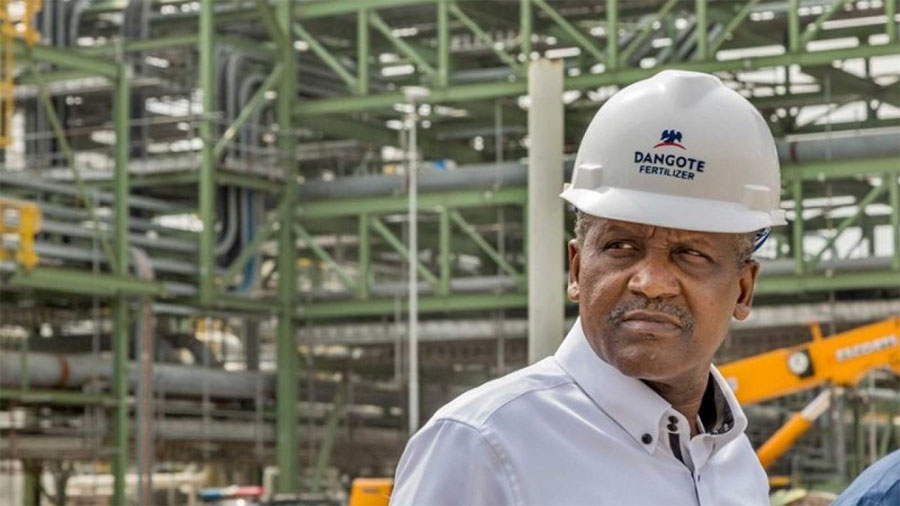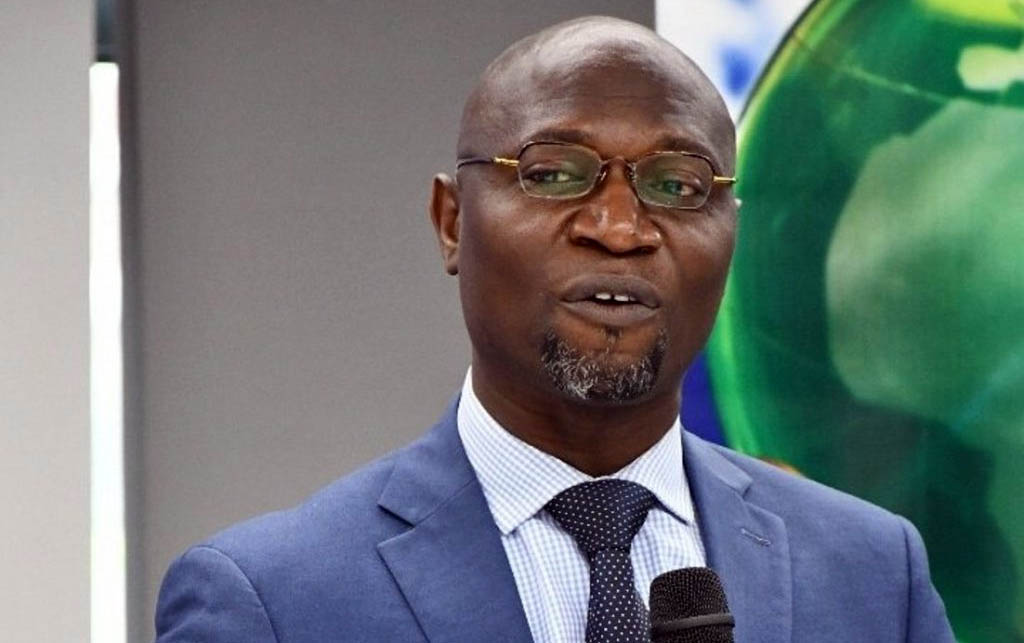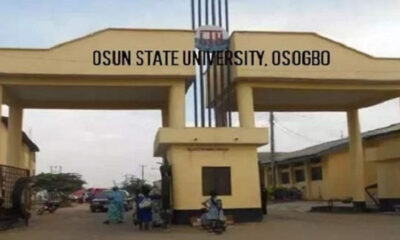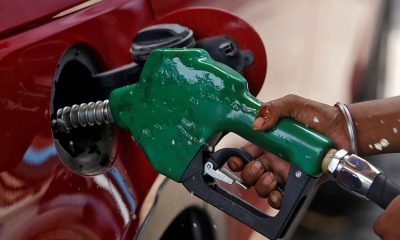Business
My refinery will begin petrol supply next month, says Aliko Dangote

My refinery will begin petrol supply next month, says Aliko Dangote
The Dangote refinery has said its plan to release premium motor spirit into the market this month will no longer be possible, sparking reactions from Nigerians.
The President of Dangote Group, Aliko Dangote told newsmen during a tour of the facility with Governor Babajide Sanwo-olu of Lagos State on Sunday that the petrol from the 650,000 barrels per day capacity refinery would be out in July.
Dangote said this was due to some minor challenges, stating that the product would be out by July 10 to 15.
“We had a bit of delay, but PMS will start coming out by 10 to 15 of July. But then we want to keep it in the tank to make sure that it settles. So by the third week of July, we’ll be able to come out to take it into the market,” Dangote had said.
Reacting to the update from Dangote, some Nigerians held different views on what could have been the reason for the recurrent postponement.
A Facebook user, Anthony Ihenyen, said it was not easy to have such a huge investment.
“You are trying, sir, and it will fly. We need more people like you to do more here in Nigeria, not abroad. Nobody is a saint.
On his part, Emmanuel Ose expressed concern, saying “Anything that will make an average Nigerian happy is always a problem to get in Nigeria”.
Another commenter, Adeola Orukotan, said, “When you know your refinery isn’t ready, why rush to declare it open? Now it’s over one year with story upon story.”
READ ALSO:
- Naira appreciates further to N1,473/$ at official market
- Guinness owners to leave Nigeria, sells shares amid crippling economic policies
- Erik ten Hag to remain as manager at Manchester United
An X user, @ajagunsegun, stated, “Nigerians were told that the Dangote refinery was due for operation when it was commissioned by Buhari in May 2023, but up until now, we’re still waiting. Well, Dangote has the right to run his private business however he wishes. But what about the four Nigerian refineries? When President Tinubu came into power, he promised that the Port Harcourt refinery would begin operation by December last year, this is June 2024, and we’re still waiting. Sincerely, there’s no way you’ll reside in Nigeria without developing the tendency to lie. There are too many lies and government propaganda everywhere.
But Michael Chibuzo remarked that a refinery is not a “barbecue business.”
“It is complex. You have to pass a lot of tests and carry out many test runs. Commercial production is always the last stage of the entire process. Let’s be patient,” Chibuzo advised.
@Selomsarl stated, “Thank you for the update, Mr. Dangote. We appreciate your commitment to ensuring the quality of the petrol before releasing it into the market. Your dedication to producing high-quality products is commendable. Questions, sir: How will the new refinery’s production affect the current fuel scarcity in the country? Will the petrol produced by the refinery be subsidised, or will it be sold at the current market price? How will the distribution of the petrol be handled to ensure it reaches all states and regions equally?”
In all of these, a netizen, Stanley Omoyemi, submitted, “We are waiting patiently.”
The PUNCH recalls that Dangote, last month, disclosed that it would begin the sale of PMS in June, saying his refinery would end the importation of petrol into Nigeria.
Speaking at the recent Africa CEO Forum Annual Summit in Kigali, Rwanda, Dangote expressed optimism about transforming Africa’s energy landscape.
“Right now, Nigeria has no cause to import anything apart from gasoline and by sometime in June, within the next four or five weeks, Nigeria shouldn’t import anything like gasoline; not one drop of a litre,” he declared
“We have enough gasoline to give to at least the entire West Africa, diesel to give to West Africa and Central Africa. We have enough aviation fuel to give to the entire continent and also export some to Brazil and Mexico.
“We have started producing jet fuel, we are producing diesel, and by next month, we’ll be producing gasoline. What that will do, it will be able to take most African crude,” Dangote told the panel.
The words of Dangote appeared to have come as a soothing balm to marketers and Nigerians who are hopeful that the Dangote would crash the price of petrol from around N700 to N500 or below.
My refinery will begin petrol supply next month, says Aliko Dangote
Aviation
Aviation workers threaten nationwide airports shutdown over Customs officer assault

Aviation workers threaten nationwide airports shutdown over Customs officer assault
Aviation unions have announced plans to shut down airports across Nigeria starting March 31 in protest against the failure to remove a customs officer who allegedly assaulted the Director of Aviation Security at the Federal Airports Authority of Nigeria (FAAN).
In a joint statement signed by Ocheme Aba (NUATE), Frances Akinjole (ATSSSAN), and Abdul Rasaq Saidu (ANAP), the unions condemned the repeated physical assaults on FAAN staff, vowing not to tolerate such incidents any longer.
The unions also called on the government to urgently reduce the number of customs officers operating within the aviation sector, aligning with global best practices. They warned that if their demands are not met, they will proceed with the nationwide shutdown, potentially disrupting air travel and operations.
The statement reads: “Considering the enormity and frequency of physical and psychological assault on the staff and management personnel of FAAN, of which there is no end in sight, we are compelled to inform the management of the unwavering determination of our unions to cause the establishment of a clear framework of mutual respect among FAAN staff and the security agencies operating at the airports.
READ ALSO:
- Over 100 suspects arrested in Abuja Ponzi Scheme Academy raid
- Again Obasanjo accuses federal lawmakers of bribery
- FG to pay corps members backlog of delayed N77,000 allowance
“Consequential sanctions are in place which guarantee the safety and human rights of FAAN staff. We shall direct all the workers to withdraw from the airports with effect from March 31, 2025, pending when such protocols are established.
“The recent assault on no less a personality than the Director of Aviation Security of FAAN is one too many, which leaves a taste too bitter to swallow. It is our sincere hope that our demand in the above respect is well met to avoid the industrial conflagration that will ensue in the absence of acceptable remedial actions.”
In response, Abdullahi Maiwada, the spokesperson for Customs, stated in a recent release that the disagreement between FAAN officials and officers of the Nigeria Customs Service (NCS) stemmed from a miscommunication over equipment movement and seating arrangements.
Aviation workers threaten nationwide airports shutdown over Customs officer assault
Business
SEC announces stricter measures to protect investors

SEC announces stricter measures to protect investors
The Securities and Exchange Commission (SEC) has reaffirmed its commitment to protecting investors in Nigeria’s capital market by cracking down on fraudulent activities.
According to the Director-General of SEC, Dr. Emomotimi Agama, operators engaging in unscrupulous practices will face strict penalties as the Commission prioritizes safeguarding investor interests.
“So, clearly for us, it is getting people to understand that there is no hiding place anymore for anybody that has the intention to defraud Nigerians and to defraud anybody that is investing in this market,” Dr. Agama stated, emphasizing the Commission’s zero-tolerance policy.
READ ALSO:
- Why postgraduate students are ineligible for FG loan – NELFUND
- Bitcoin rises above $86,000 as crypto market gains momentum
- 2 Nigerians in US face heavy jail term over fraud
Dr. Agama highlighted that the Investments and Securities Act (ISA) 2007 serves as the framework for securities regulation in Nigeria, ensuring that market operators adhere to high ethical standards.
He emphasized the importance of the “fit and proper person’s test,” which requires operators to meet specific regulatory criteria to maintain their licenses.
“This is because the very ethics of regulating or registering a securities market operator is in the principle of the fit and proper person’s test,” he explained.
“What you have been seeing most recently by the revocation of licenses, the suspension of operators and our follow-up to operators that are not registered with the SEC is only a tip of the iceberg as to what we intend to do this year.”
Dr. Agama assured stakeholders that the SEC will leverage its regulatory powers under Nigerian law to deter fraudulent activities, noting, “We believe strongly that a protected investor is a powerful investor.”
SEC announces stricter measures to protect investors
Business
Bitcoin rises above $86,000 as crypto market gains momentum

Bitcoin rises above $86,000 as crypto market gains momentum
Bitcoin and other leading cryptocurrencies extended their gains on Monday, buoyed by positive investor sentiment despite concerns over upcoming U.S. tariffs and key economic data releases later this week.
As of 7am WAT, Bitcoin rose 3.2% to $86,590, while Ethereum gained 2.3%, trading at $2,047.
The global cryptocurrency market capitalization increased by 2.94% in the past 24 hours, reaching $2.84 trillion.
Other notable performers included XRP, Cardano, and Dogecoin, which posted gains of 3%, 2%, and 3.8%, respectively. Chainlink, Avalanche, Hedera, and Stellar recorded growth ranging from 3% to 10%.
“Bitcoin is holding above $86,000, registering a 3% gain today. The key resistance level to watch is $86,700; a breakout could pave the way for $90,000,” said Vikram Subburaj, CEO of Giottus.
Bitcoin’s market capitalization surged to $1.727 trillion, with dominance rising to 60.73%. Its 24-hour trading volume soared by 93% to $18.2 billion, while stablecoin transactions accounted for 94.74% of total crypto trading, reaching $57.58 billion, according to CoinMarketCap.
READ ALSO:
- 2 Nigerians in US face heavy jail term over fraud
- Canada denies 13,000 Nigerians refugee status
- Lagos Govt to redesign Oshodi motor park for rail integration
Solana Outperforms Peers Amid Positive Market Sentiment
Solana (SOL) emerged as a standout performer, surging over 7% in the past 24 hours to trade above $139.
The rally was fueled by reports suggesting that President Trump’s April 2 tariffs may be more targeted than initially feared, easing market concerns.
Weekend rumors indicated that the tariffs might include country exemptions and non-cumulative charges on metals, contributing to improved sentiment across global markets.
The Federal Reserve’s projections for two rate cuts this year further supported risk assets, with the central bank describing potential tariff-induced inflation as “transitory.”
BitMEX co-founder Arthur Hayes expressed optimism about Bitcoin’s trajectory, stating, “The Fed’s policy orientation could help Bitcoin achieve $110k before it retests $76.5k.”
Solana’s momentum aligns with unprecedented acceptance rates. DeFiLlama reported that Solana’s total value locked (TVL) reached 54.87 million SOL, its highest level since June 2022. Ali Charts revealed that a record 11.09 million addresses now hold SOL, underscoring growing adoption.
Bitcoin rises above $86,000 as crypto market gains momentum
-

 metro2 days ago
metro2 days agoAttack on Mufty of Ilorin: Onikijipa Family Charges Stakeholders to Call Sheikh Habibullahi Al-Ilory to Order
-

 metro3 days ago
metro3 days agoCourt refers Ojukwu property case to alternative dispute resolution
-

 Health2 days ago
Health2 days agoNigerian doctor pioneers W’Africa first robotic prostate cancer surgery
-

 metro3 days ago
metro3 days agoCBN rejects Osun nomination of ex-Aregbesola’s commissioner as bank director
-

 metro3 days ago
metro3 days agoRivers: Presidency reveals security intelligence leading to emergency rule
-

 metro2 days ago
metro2 days agoFubara: Supreme Court reacts to photo of Justice Agim with Wike
-

 metro2 days ago
metro2 days agoUNIOSUN mourns as 5 students die in auto crash
-

 metro3 days ago
metro3 days agoShehu Sani faults senators taking voice vote objection to media













